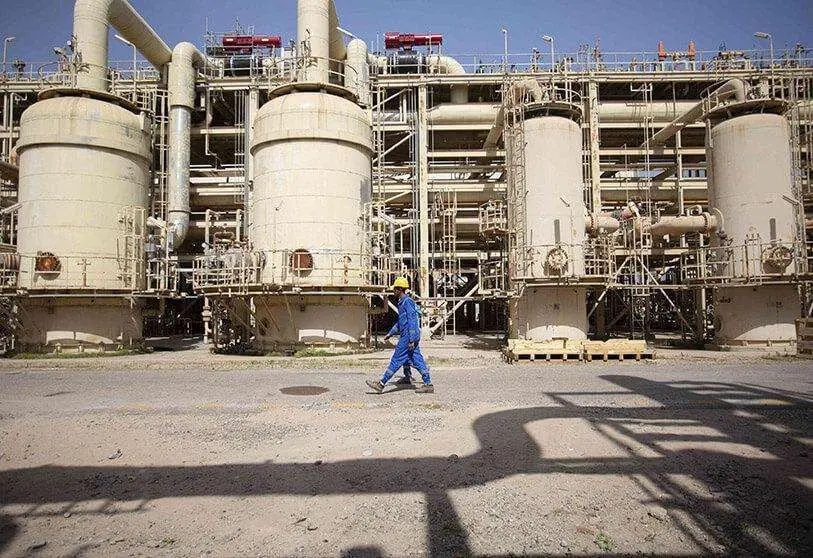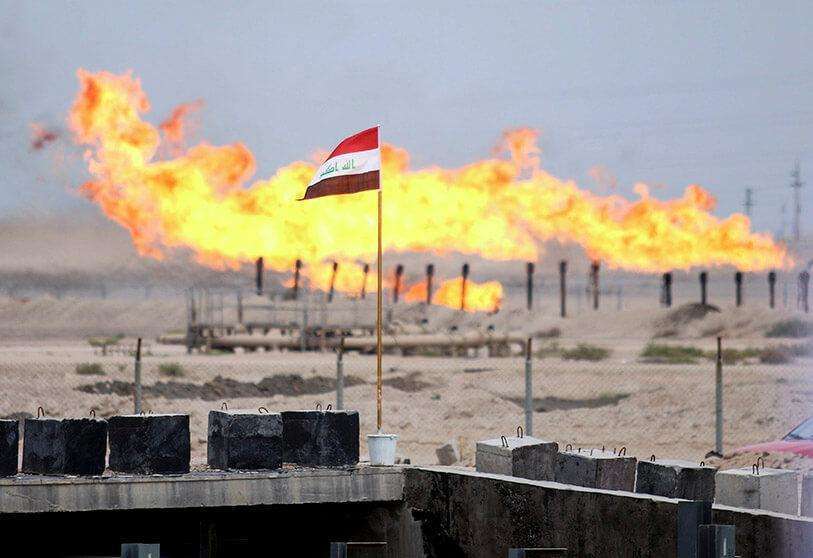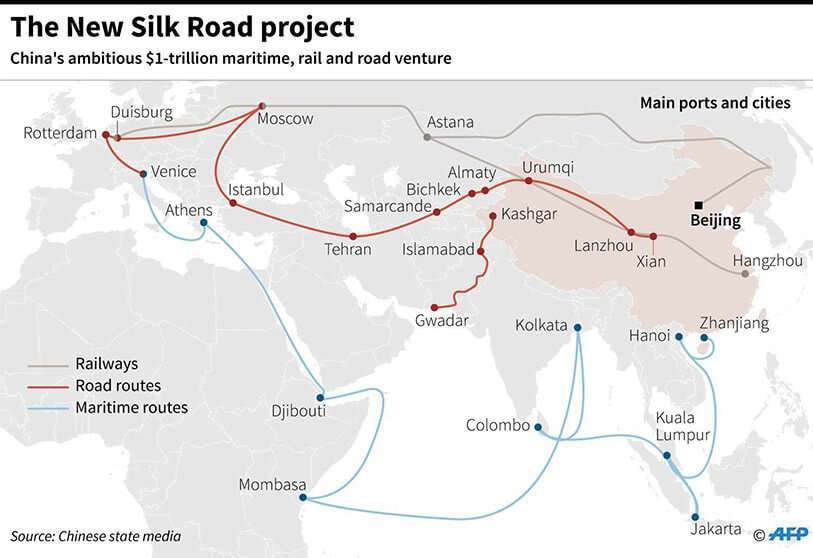Iraq seeks to limit Chinese influence in its oil sector

The departure of Western companies from Iraqi territory in the face of Chinese presence is alarming
Iraq is trying to prevent its oil sector from being monopolised by China. The Iraqi Oil Ministry has vetoed up to three business deals that would have transferred a large part of its oil infrastructure from Western to Chinese hands.
Baghdad fears excessive control by Chinese state-owned companies, which already operate in the country, as well as a mass exodus of Western companies in a context of economic crisis. "We don't want the Iraqi energy sector to be labelled as a Chinese-led energy sector," a local official told Reuters.
Lukoil, Russia's leading private oil company, and US-based Exxon Mobil have been interested in transferring their assets in the country to several Chinese state-owned companies. The Russian company has been in contact with Sinopec to sell its stake in the West Qurna 2 oil field, while Exxon Mobil has sought to do the same with its stake in West Qurna 1, signing an agreement with China National Offshore Oil Corporation and PetroChina

While Baghdad managed to avoid the first transaction by offering better terms to Lukoil, Exxon Mobil wanted to go ahead with the sale and requested arbitration proceedings before the International Chamber of Commerce.
Unable to convince the company to stay in the country, Baghdad first tried to find a substitute from the US. "When Exxon Mobil leaves, we will not accept a replacement other than another US company," declared Prime Minister Mustafa al-Kadhimi at the time. When these attempts failed, the state-owned Iraq National Oil Company announced that it would take a stake.

Britain's BP was also reportedly interested in transferring its Rumaila oil field assets to a Chinese state-owned company, but the Iraqi authorities reportedly managed to convince it to back out.
Other Western companies have previously left Iraq, including US-based Occidental Petroleum and Britain's Shell.
Iraq, which has the fifth largest oil reserves in the world according to the CIA, is a country heavily dependent on oil. Up to 96% of its exports, 92% of the state budget and 43% of GDP depend on this sector, according to World Bank data.
Since the US invasion in 2003, several Western companies had invested heavily in Iraq's oil industry, but, for some years now, they seem to have been losing interest and looking to leave the country.

Nevertheless, Baghdad is in need of foreign investment to boost the country's reconstruction after the devastating war against Daesh. This is made all the more urgent by the consequences of the COVID-19 pandemic, which severely strained the Iraqi economy due to lower crude oil prices on international markets, leading to a GDP contraction of up to 10.4%, according to the World Bank.
However, the abandonment of the country by major Western energy companies threatens to reduce Baghdad's access to foreign technology and capital, and thus reduce oil production.
According to Ihsan al-Attar, an Oil Ministry official, this exodus is linked to a worsening investment climate in the south and east of the country, exacerbated by a social backlash among Iraqis, who accuse these companies of "colonialism". According to this official, Chinese companies have taken advantage of this vacuum to increase their presence.

The current climate of political impasse in Iraq, with a new government not yet in place after the October 2021 elections, is not helping to restore investor confidence.
This lack of agreement is worsened by the interference of external actors, most notably Iran, which seeks to balance the country's political balance in its favour, using the Popular Mobilisation Forces, a coalition of mainly Shiite militias allied with the Persian country. The latter have recently been accused of carrying out attacks on the oil infrastructure of Kurdistan, a region where up to a third of Iraq's total oil reserves are located, perpetuating the problem of growing investor distrust.

For its part, China has become the world's largest importer of oil and natural gas, in order to feed an economy that has not stopped growing at a dizzying pace since Deng Xiaoping initiated in 1978 the so-called "Reform and Opening-up", by which the Chinese Communist Party (CCP) left behind the autarchy of the Maoist period and opened its arms to the world economy.
In this sense, in 2021, China imported 10.26 million barrels of oil per day, nearly 25% of all crude oil imports worldwide, an immense demand to which the Celestial Empire has tried to respond by establishing energy relations with as many producing countries as possible.

Since 1993, when China became a net oil importer, Beijing has encouraged the expansion of its state-owned companies into the oil industries of developing countries. This has accelerated since 1999, when the then president Jiang Zemin announced the go out/go global policy, with which the CCP encouraged foreign investment by its companies, with the aim of securing the country's energy supply.
Here, Iraq, OPEC's second largest oil producer, has positioned itself as one of the major beneficiaries. After the fall of Saddam Hussein in 2003, Chinese state-owned companies began to invest heavily in the sector and Baghdad quickly positioned itself as one of its main energy partners.

Today, the Arab country is the third largest exporter of crude oil to the Asian giant, to which it sends up to 30% of its total crude exports, and the Celestial Empire is already its number one trading partner. Not even the rise of the Islamic State in Iraq put an end to this relationship, with China importing up to half of all the crude oil extracted in the country during the worst moments of the insurgency.
This link was accelerated in 2019 with the signing of a Memorandum of Understanding by which Iraq joined the Belt and Road Initiative (BRI), better known as the New Silk Road, which the then Iraqi prime minister, Adel Abdul Mahdi, described as a "quantum leap" in Sino-Iraqi relations. "I will ask Chinese companies to contribute and work vigorously and effectively in the renaissance and reconstruction of Iraq," the Iraqi premier said at the time.

The BRI is Chinese President Xi Jinping's key project. Announced in 2013, the BRI's main objective is to build infrastructure to improve China's connections with the rest of the world, focusing on projects related to energy, infrastructure construction and transport. Here, Beijing enters into bilateral agreements with interested countries and usually finances the projects with concessional loans.
By 2021, according to a Fudan University report, Baghdad would have received up to $10.5 billion in construction contracts associated with the BRI, making it the largest recipient globally. Of this, up to $6.4 billion is reportedly in the oil sector and another $1.8 billion in the gas sector, making the Arab country the largest recipient of energy investment from the BRI in 2021, and the third largest in the period between 2013 and 2021, behind only Pakistan and Russia.

And Beijing is looking to increase its presence even further, as shown by its state-owned companies' attempts to acquire Western-held assets in the country, as well as its enthusiasm to participate in Iraq's public procurement contracts.
But this great leap forward in China's presence has also generated friction. Beijing has been accused by its rivals of engaging in 'Debt Trap Diplomacy', whereby it would use its economic might to make loans to developing countries that could not repay and then use their debt to extract concessions.
In this sense, for Kirk Sowell, a risk analyst specialising in Iraq, "the concern among Iraqi critics of the China deals is the amount of oil that is being mortgaged to pay for Chinese investments, a question we don't know the answer to". This has already happened with other developing oil-producing countries such as Venezuela and Angola, which have had to finance their debts to China through direct shipments of crude oil.

It is in this context that Baghdad is reportedly trying to limit the growth of its oil industry assets in Chinese hands. However, given Iraq's dependence on this sector, China's economic power and Western business withdrawal, this strategy could run the risk of aligning the Asian giant without succeeding in keeping increasingly uninterested Western companies in the country.








